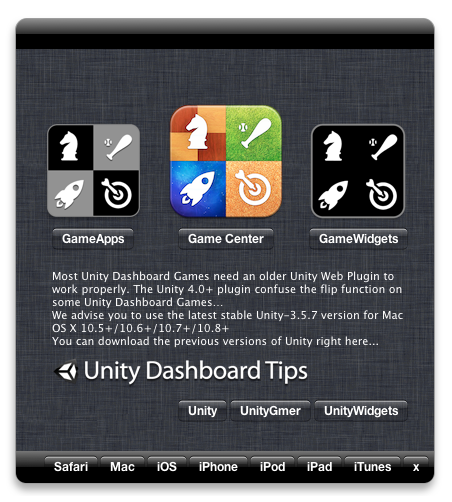


In Terminal, type in the following command and press Enter:ĭefaults write devmode YES & killall Dock You can launch Spotlight with the shortcut CMD + Space then search for Terminal before pressing Enter. Recommended Reading: 20 Handy Mavericks Tips & Tricks You Probably Don’t Know Getting Widgets On The Desktopįirst we need to open up Terminal. You will need to use Terminal for this and it’s a real simple tip.

If you’d prefer to not switch Spaces to get to your widgets, there is a way to place your widgets right on your desktop. However, they are only available in their own separate space, meaning that you have to go to that space to use them. Once you’ve switched over to the Dashboard layer, click on the plus-sign-in-a-circle icon in the lower left corner to call up the Widget Bar, where you’ll see an alphabetical, graphical list of all the widgets installed on your Mac.Dashboard allows you to install useful single-function widgets on your Mac, for instance, the calendar, calculator, reminder, etc. That said, if you’re used to the way Exposé makes application windows appear and disappear, switching to and from the Dashboard layer should quickly feel like second nature. Actually, they’re about as related as your Desktop picture and your screen saver-which is to say not very. From there, it will automatically be available the next time you’re in Dashboard.īecause Apple has put Dashboard’s preferences in the Exposé preference pane, it’s natural to think the two have something in common. When you see an alert warning you that your download contains an application (pictured below), click “Continue” and the widget will move itself into ~/Library/widgets/. Wherever you get your widgets, Apple’s done a little behind-the-scenes magic to make them install themselves: If the site you’re downloading from has done its work correctly, you should be able to click on a link in your browser and download the widget.


 0 kommentar(er)
0 kommentar(er)
